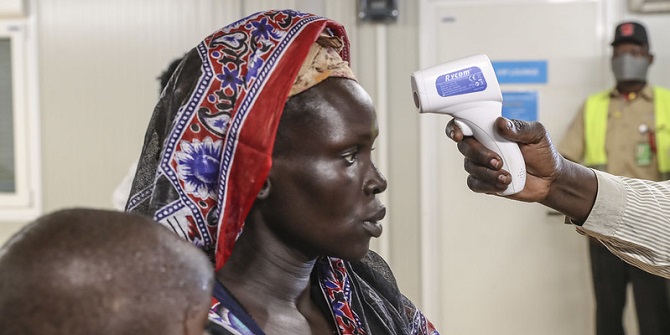
As of 18 June 2020, South Sudan has reportedly had 1,776 cases, 58 recoveries and 30 deaths from the COVID-19 virus out of an estimated population of over 10 million people. While these figures pale in comparison to those in the United States, which is the pandemic’s present epicentre, data on the virus responsible for COVID-19 in South Sudan is likely underreported owing to the dearth of testing kits and limited testing capacity. The spread of the disease in the country also needs to be carefully situated within the South Sudanese context, where the majority of the country’s populace have long experienced some of the world’s poorest health indicators.
In addition to the COVID-19 virus’ potentially devastating health impact, the pandemic exposes and exacerbates existing economic, social and political inequities in countries such as the United States and Britain. While reasonable to imagine that this pattern is hardly unique to wealthy countries, the virus responsible for COVID-19’s ramifications in developing countries and conflict-affected states such as South Sudan remains unclear. Thus far, reports on its potential outcomes in African countries such as South Sudan span from cautious optimism to outright pessimism.
For instance, a recent New Yorker magazine article suggests that because of South Sudan’s experience managing highly contagious diseases such as Ebola, the country might generate lessons for the rest of the world to draw from about how to proceed. While others add that because of its predominantly youthful demographics, South Sudan could have better post-COVID health outcomes than western countries, depending on the country’s response.
Conversely, the South Sudanese Eye Radio reported that South Sudan is likely to be the most dangerous country in the world for people infected by COVID-19. Additional reports, including the International Growth Centre’s recent brief, suggest that the economic impact of the COVID-19 induced lockdowns in Sub-Saharan Africa will perhaps be the most significant threat to the continent. Worsening matters, South Sudan’s oil reserves will likely run dry within the next 10-years and the COVID-19 virus has already contributed to an historically sharp decline in global oil prices. As one of the world’s most oil dependent countries, the pandemic appears likely to diminish the state’s already ostensibly dwindling coffers.
In addition to these perspectives, which are predominately produced by external observers, the CRP’s South Sudanese researchers in Juba, Ler, Malakal, Nimule and Yambio offer observations about COVID-19’s unfolding impact in their localities. They highlight the prevalence and dangers of at least two sets of rumours, which appear to be prevalent among the majority of the population which has very limited access to media, healthcare, food and clean water and might be the most vulnerable to the pandemic. Critically, these rumours also speak to how the pandemic might play into and potentially retool violent and kleptocratic governance practices, which Alex de Waal calls the ‘political marketplace’.
Indeed, in one sense these rumours speak to public distrust of both the international community and the ruling coalition’s competence and willingness to support ordinary South Sudanese. And in another, as the anthropologist James C. Scott argues, gossip is a powerful tool for subaltern communities to critique power; thus, these rumours might also serve as both public and hidden transcripts of resistance. This public reaction to the ongoing pandemic is not unique to South Sudan, as David Mwambari and Awino Okech write, people in other African countries have responded similarly.
Rumour 1: The COVID-19 Virus, Xenophobia, and Local and International Power Struggles
This set of rumours deflects blame from the ruling coalition and attributes the disease to an economic fight between China and the United States. This canard essentially argues that the disease has been unleashed throughout the world by one or both of the countries in an effort to destroy the other. South Sudan is therefore the unwitting victim of the skirmish between these superpower ‘elephants’ as they trample over other countries in the course of their dispute. Interestingly, this line of thinking echoes popular narratives about South Sudan’s own conflict, whereby ordinary South Sudanese citizens are the overwhelmingly frequent victims of Salva Kiir and Riek Machar’s own power struggle.
Adding to the perception that the disease is an external imposition, researchers also reported that the COVID-19 virus is fuelling xenophobia in the country. And, some of the related anger and unease about the disease has been directed at the NGO and UN communities on the grounds that the virus responsible for COVID-19 only impacts ‘white people and NGO workers’. As an example of this rumour’s power, one researcher reported that people from the Malakal Protection of Civilians (POC) site ‘sieged the UN compound on all corners following a rumour that the first coronavirus case was from a UN staffer in Juba’. This standoff continued for nearly a week and may have contributed to food shortages and food price increases and underscores that the POCs might be particularly at risk if the COVID-19 virus takes hold in South Sudan.
In addition to sidestepping the government’s own responsibility to effectively stymie the pandemic in South Sudan, people connected to the state might also be leveraging xenophobia in an attempt to manage people in the Malakal POC. For instance, our CRP researcher in Malakal indicated that people in the POC site believe that national political leadership in Juba ‘perceive[s] those in the camps [to be] pro-opposition and therefore it is unlikely [people in the POC camps] heed [calls] for them to leave the POC [camp] and go to their homes of origin’. The researcher added that the government actively deployed xenophobic rumours so as to undermine the UN and the international community ‘which [the government] claims always aims at regime change’. This rumour was all the more pervasive because an increased number of people thought to be part of the state intelligence apparatus were apparently deployed around the area.
Rumour 2: The Pandemic and Public Perceptions of the Political Marketplace
Multiple researchers reported that the High-Level Taskforce for COVID-19 is corrupt and only out to protect South Sudanese elites. This may be more than a rumour and also constitutes a popular value judgement of political leadership in South Sudan. Out of all the CRP’s research areas, this sentiment appears particularly prevalent in the Malakal POC site and in turn fuelled notions that: ‘Machar has betrayed [people in the POC] too soon and was being used by Kiir to lead a taskforce that does no good to the needy but fulfils [the] Kiir regime’s brinkmanship, [which] is often coupled with corrupt practices’.
According to this combination of political value judgements and rumours, the same researcher reported that ‘[c]ountrywide, [and] in Juba specifically, people are furious [at] the government for imposing restrictions [without] providing an alternative way [to] tackle issues that [concern] people’s livelihoods’. Given how difficult many South Sudanese people’s lives were prior to the pandemic, our researcher reported that some people in the POC site weigh whether to stay home and die of hunger or go ‘out to look for something to eat and die [because] of the coronavirus’. Furthermore, given public distrust in the government’s motivations, researchers reported that many people appear to be flouting COVID-19 social distancing requirements.
COVID-19 Rumours and South Sudan’s Political Marketplace
The Conflict Research Programme’s analysis of South Sudan’s political marketplace provides deeper insights into how the virus responsible for COVID-19 might intensify pre-existing economic, security and political crises. Indeed, in addition to spotlighting rumours, researchers reported that violent crime and killings had increased in the country and suggested that this could be a direct consequence of heightening competition within South Sudan’s political marketplace.
For instance, one researcher argued that a political vacuum appears to be emerging within state governments after this year’s announcement that the number of states in South Sudan would contract to ten. As there are fewer relatively comfortable government positions that generate status and financial gain for connected individuals, the stakes to obtain a seat might be rising. Likewise, as government salaries are delayed or otherwise inadequate, security forces around the Malakal POC ‘seem to have found a new way of earning money as they now demand that anybody [bring] fish, charcoal or any type of goods’ to them. If people fail to comply with these demands they are sometimes denied access to the camp or their goods are confiscated.
This sample of rumours about the virus responsible for COVID-19’s impact indicates some of the ways in which the pandemic appears to be perpetuating the politics of fear in the country. More profoundly, these observations also highlight how South Sudan’s political marketplace could be adapting to, or even altering, the country’s pandemic politics.
Note: The CRP blogs gives the views of the author, not the position of the Conflict Research Programme, the London School of Economics and Political Science, or the UK Government.

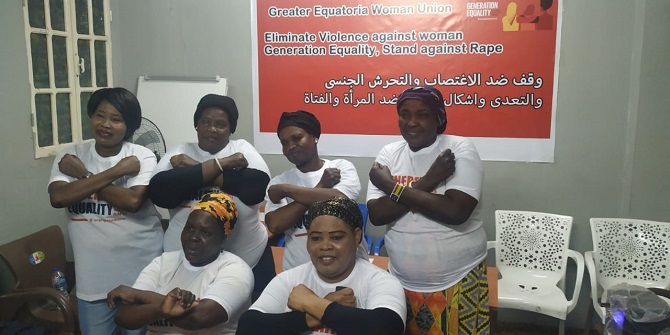
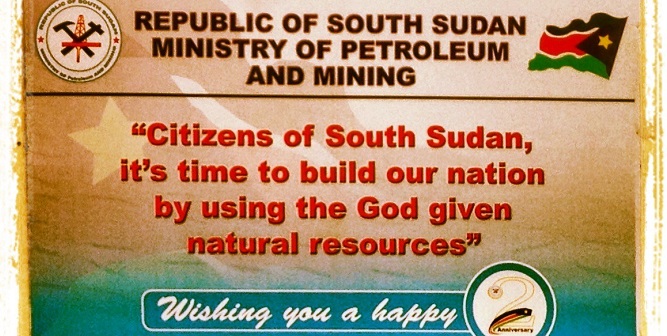

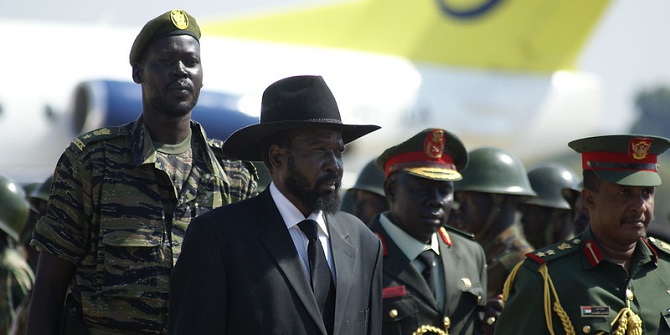
Great article!